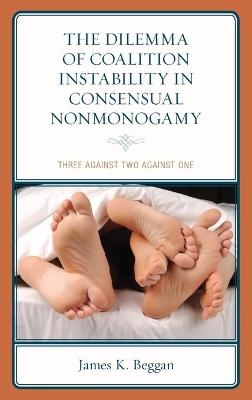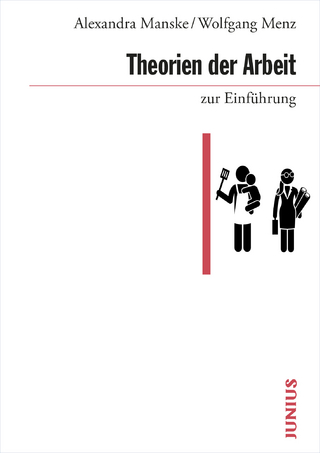
The Dilemma of Coalition Instability in Consensual Nonmonogamy
Three Against Two Against One
Seiten
2020
Lexington Books (Verlag)
978-1-7936-1937-2 (ISBN)
Lexington Books (Verlag)
978-1-7936-1937-2 (ISBN)
This book uses game theory to frame consensually nonmonogamous romantic and sexual relationships as a conflict between cooperation and competition, explaining how coalition instability can sabotage triadic romantic and sexual relationships.
Different forms of consensual nonmonogamy, such as polyamory and swinging, have achieved greater prominence in daily conversation and representation in mass media. Although advocates recognize that the presence of additional people creates difficulties, the author argues that this greater complexity may lead to unavoidable instability. Drawing from classic work by Georg Simmel as well as modern research in the social sciences, James K. Beggan considers how the presence of a third person is what allows the formation of coalitions which then become part of the process that can break apart the triad. This paradox—explained with reference to game theory and social interdependence—represents the existential threat to the quest for consensual nonmonogamy. Beggan describes how psychological processes involving social comparison and gender and sexual orientation can limit the formation of certain types of coalitions which, in turn, influence which relationships can be expected to emerge in the context of consensual nonmonogamy. His analysis includes macro-level social issues related to establishing consensual nonmonogamy as a valid social identity and alternative to conventional marriage. Using insights from game theory, he suggests possible meta-solutions to coalition conflicts that emerge in triadic romantic and sexual relationships.
Different forms of consensual nonmonogamy, such as polyamory and swinging, have achieved greater prominence in daily conversation and representation in mass media. Although advocates recognize that the presence of additional people creates difficulties, the author argues that this greater complexity may lead to unavoidable instability. Drawing from classic work by Georg Simmel as well as modern research in the social sciences, James K. Beggan considers how the presence of a third person is what allows the formation of coalitions which then become part of the process that can break apart the triad. This paradox—explained with reference to game theory and social interdependence—represents the existential threat to the quest for consensual nonmonogamy. Beggan describes how psychological processes involving social comparison and gender and sexual orientation can limit the formation of certain types of coalitions which, in turn, influence which relationships can be expected to emerge in the context of consensual nonmonogamy. His analysis includes macro-level social issues related to establishing consensual nonmonogamy as a valid social identity and alternative to conventional marriage. Using insights from game theory, he suggests possible meta-solutions to coalition conflicts that emerge in triadic romantic and sexual relationships.
James K. Beggan is professor of sociology at the University of Louisville.
Chapter 1: The Terms of Consensual Nonmonogamy
Chapter 2: The History of Consensual Nonmonogamy
Chapter 3: Past Research on Consensual Nonmonogamy
Chapter 4: Polynomics: Consensual Nonmonogamy as Social Interdependence
Chapter 5: Infidelity as a Choice in a Prisoners’ Dilemma Game
Chapter 6: Triads in Consensual Nonmonogamy
Chapter 7: The Instability of Triads
Chapter 8: Social Comparison and Coalitions
Chapter 9: Sex, Sexual Orientation, and Coalitions
Chapter 10: Choosing Consensual Nonmonogamy in a Monogamous World
| Erscheinungsdatum | 10.05.2021 |
|---|---|
| Verlagsort | Lanham, MD |
| Sprache | englisch |
| Maße | 162 x 241 mm |
| Gewicht | 558 g |
| Themenwelt | Sozialwissenschaften ► Soziologie ► Mikrosoziologie |
| ISBN-10 | 1-7936-1937-9 / 1793619379 |
| ISBN-13 | 978-1-7936-1937-2 / 9781793619372 |
| Zustand | Neuware |
| Haben Sie eine Frage zum Produkt? |
Mehr entdecken
aus dem Bereich
aus dem Bereich


